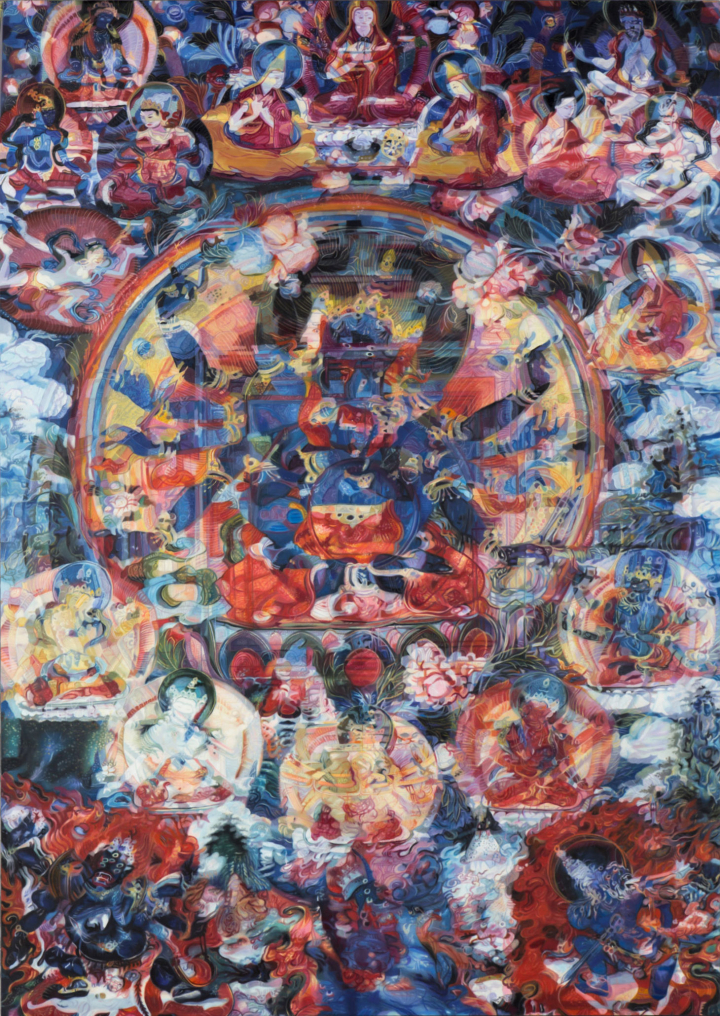The juxtaposition of Guogu’s solo shows is a call to substitute a more rigorous and nuanced critical focus for ready-made stereotypic tropes....
Buddhism has become not only a religion, but neoliberalism’s spiritual panacea. Its currency has risen across the globe. Its practice has become regionless, as hard to define as it is easy to subscribe to. ...
....
Therefore if we are to critically assess Zheng’s heterogenous oeuvre, it is necessary to secularize, so to speak, his conceptual focus to specific ends. The show at Eli Klein offers the potential for one such reading. A consistent thread that runs through the works on view is a kind of qualified, amorphous, negotiable freedom enjoyed by the individual in post-Cultural Revolution China, a period marked by the constant rise of new infrastructure, systems, and orders. Thus, this freedom is in constant haggle with an essentially authoritarian power structure whose actual rules in practice are often in flux and sometimes indeterminable. From the vagabond living outside of societal norms in “My Teacher” (1993), to the imposter couple realizing their romantic dreams in “Honeymoon” (1995), to the artist navigating local regulations to build Liao Garden (originally named Age of Empires), the freedom is mapped out by systems and rules that the individual bypasses to romance some deeper value.
....
